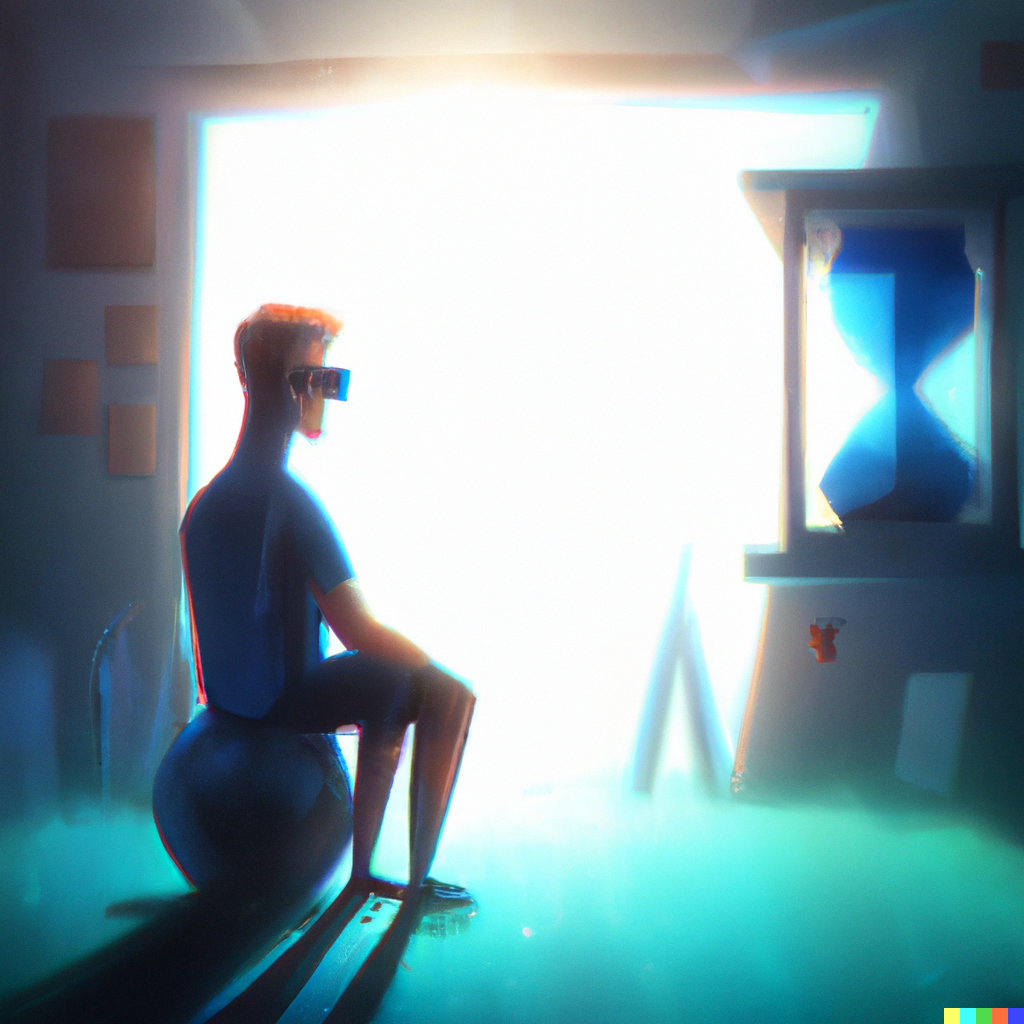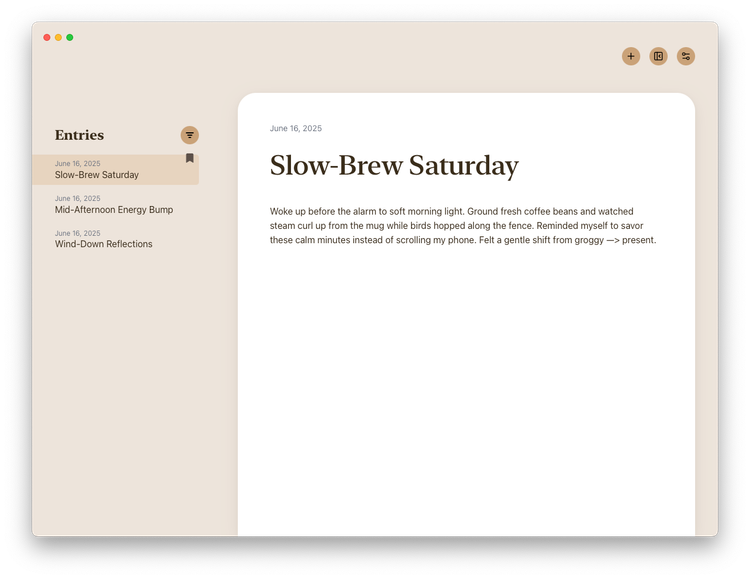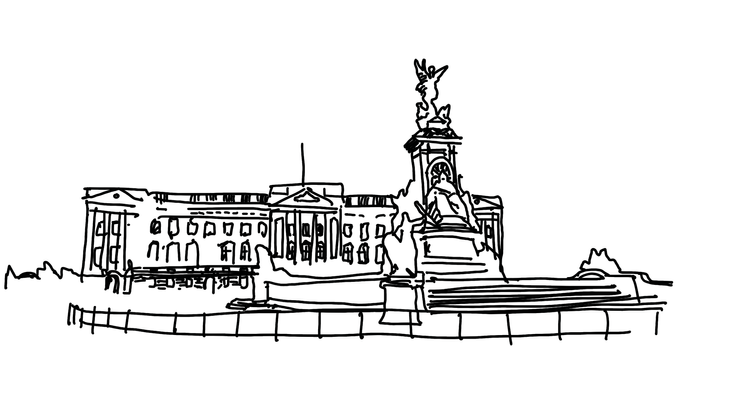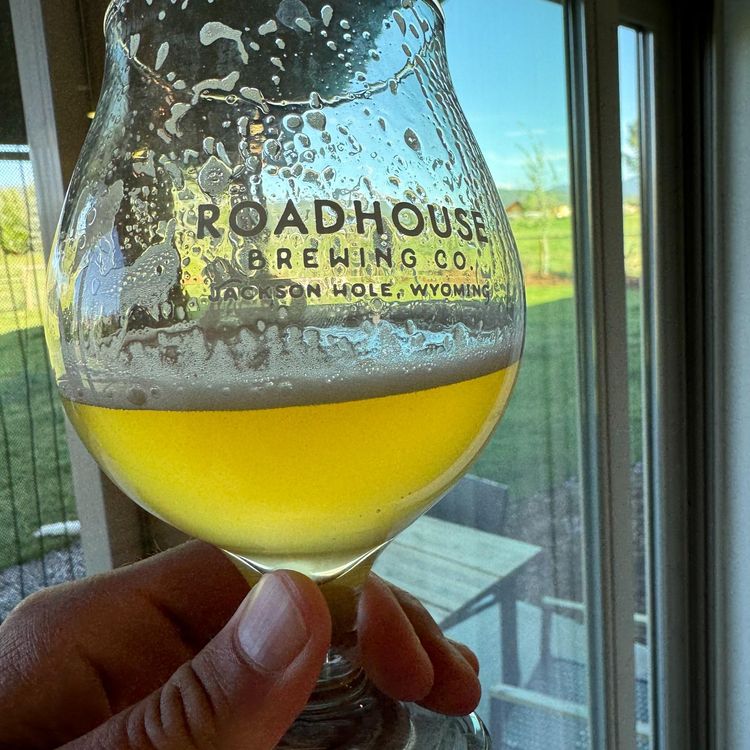On rationalizing my leisure time

After spending 2022 on the road, the only thing I really missed about our days in an apartment in the city was my PC tower. I left it in storage because it didn't make the cut for our space-constrained car. More boring things like clothes took priority.
I spent so many hours and dollars lovingly crafting that computer. It has RGB lights that pulse across the motherboard, a graphics card (one of the few to escape the crypto mining bros) around a foot long and which looks like something out of an alien spacecraft, and a series of colorful cooling fans. I got sucked into r/battlestations at one point and tried to emulate the neon components that make the Modern Gaming PC. Sometimes I just like to stare at it and listen to it whirr.

During our high-velocity nomadic year, I resolved that I would vent my pent-up gaming energy on a long binge whenever I pulled my PC back out of the storage unit. But part of this resolution was that I'd be careful about it and select finite, story-driven games. This highly-relatable piece on video game addiction from Eric Hoel (thanks to my pal RobG for the link) makes this "finite"/"infinite" distinction about gaming that I'd internalized but hadn't put into words before.
I learned back in college that League of Legends, Starcraft, or World of Warcraft-types of games consumed my time, my motivation, and, ultimately, me. My first battle in League of Legends was fun, with its little lines of minions, vibrant crystals, and surprise attacks, but also revealed just how much I sucked. Instead of shutting it down and doing homework, I cracked my knuckles and decided I would level up. That's the moment where these things can go wrong, because there's no end to that project. It's an infinite-type game. The addiction starts because you get good enough to win, but then the game places you in rounds with increasingly competent players. The time investment required to start winning against better opponents grows and grows. If you stay committed, something else in your life has to give: Relationships, grades, job, etc. For many players, it's a toxic spiral into a bad place.
I was fortunate enough to see where things were headed during that months-long romance with League. What I realized was that, unless I sought a professional career as an e-sports player, there was no point to any of it. All that time and energy spend was just for some diversion in the moment and I still had homework to do.
So, I went cold turkey, and not just in that arena. I stopped reading fiction altogether for a while. Anything I judged to be an indulgence without a life-improving purpose I refused to give my attention. The Protestant Work Ethic is one of those platformy parts of the American psyche that you feel strongly but don't notice unless you periodically examine your source code.
I had many slip-ups though, like when Elder Scrolls: Skyrim came out. The pull to play it became overwhelming with friends and the internet losing their shit about it.
After proceeding to dump 100+ hours into Skyrim like a lapsed addict, I had a realization. It wasn't like League–an infinite competition with a lack of story. Skyrim is entirely a story, and a very good one at that. So, I figured, maybe the presence of story was "life-improving" enough to make it comport with my vision of appropriate leisure activity because I could actually do something with it, however indirectly.
I started writing a lot more around the mid-2010s: Some bad fictional stuff and blogs. Writing feels productive, American. And I figured that good stories (be them in video games, novels, or elsewhere) are the seeds of good writing. The human mind is a recombinatorial creative machine. So, boom, my rationalization was born.
Suddenly video games were back in my life full-swing! And, ever since, I've been moving through the world with this philosophy in tote.
I'm writing this piece because I became aware that this outlook has expanded to most other areas of my life. Having fun outside, like skiing, climbing, or camping means I can film stuff and publish adventure videos. Getting a meat smoker means I can make videos or write about smoking meats. Every run goes up on Strava to contribute to the yearly mileage goal. Every input is a tool for creative output or a larger goal. I rarely do anything unless I can justify to myself that it will fit into my objective structure.
I'm hesitant to declare this whole way of operating my life good or bad. I can see that this is where the anti-capitalist philosophers would jump in and tell me that I'm just running on Max Weber's treadmill and not being present and that I should meditate more and do things purely for their own sake. At the very least, this structure to my life does beg the question: So if you do all of these things to seed creative outputs or hit larger targets, what are those all for?
I dunno, a sense of broader meaning and purpose? I just know I don't feel good when my balance tilts too much toward consumption rather than production. I don’t have a desire to deconstruct that and reformulate my personal meaning into something less Calvinistic or whatever. Or strip it all away like a nihilist.
The thing is: I like it. It works for me. It's compelling to think that all of your leisures actually roll up to a larger goal, even if there is some self-deception involved. It's impossible that every grain of every story I imbibe makes it into something I produce. Maybe not everything has a utility! But it feels pretty good to operate like this and I feel like it helps me achieve some balance: Knowing that I have to take a break from the video games or reading or movies to work on some writing, or some relationships, and contribute something back to the world.





